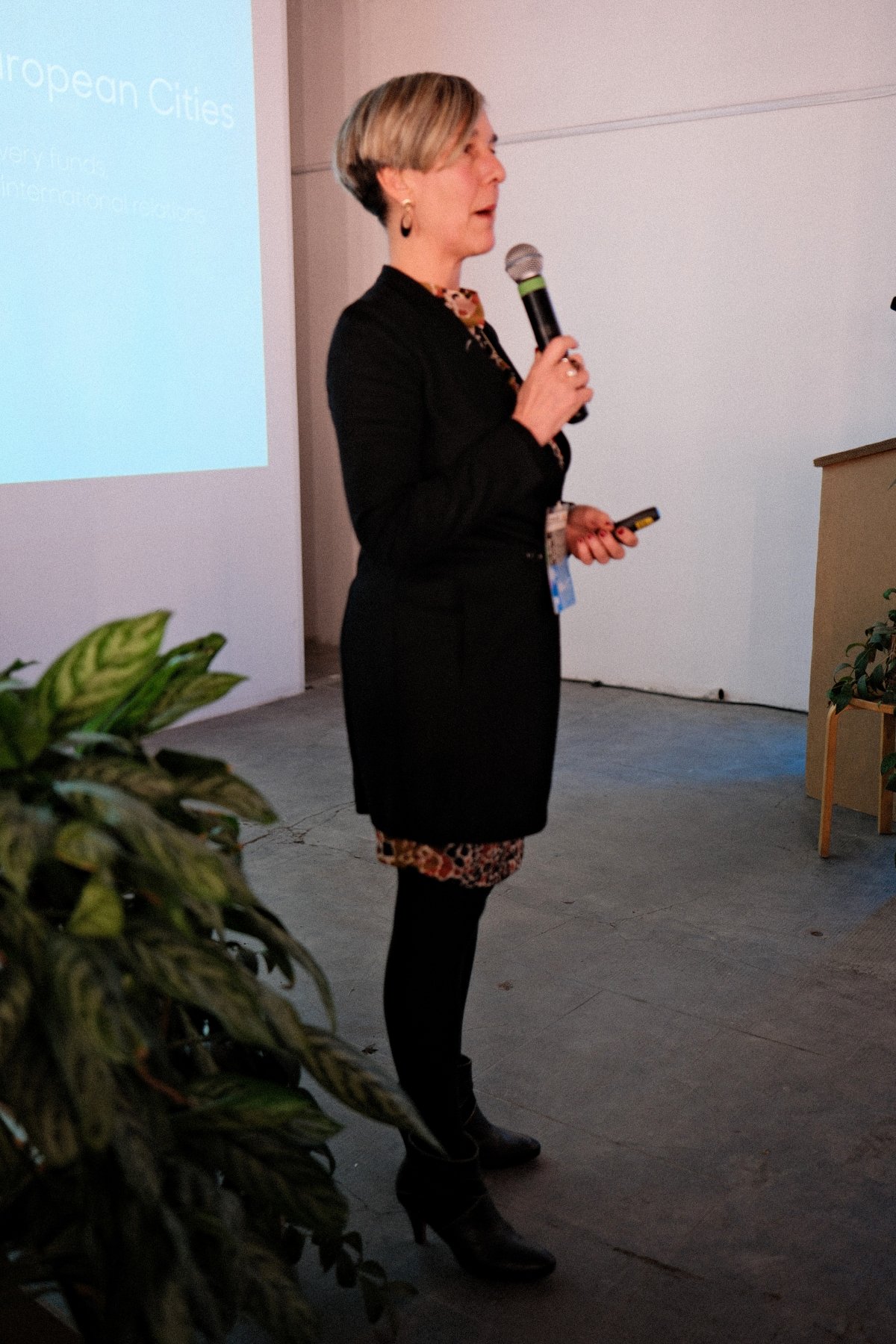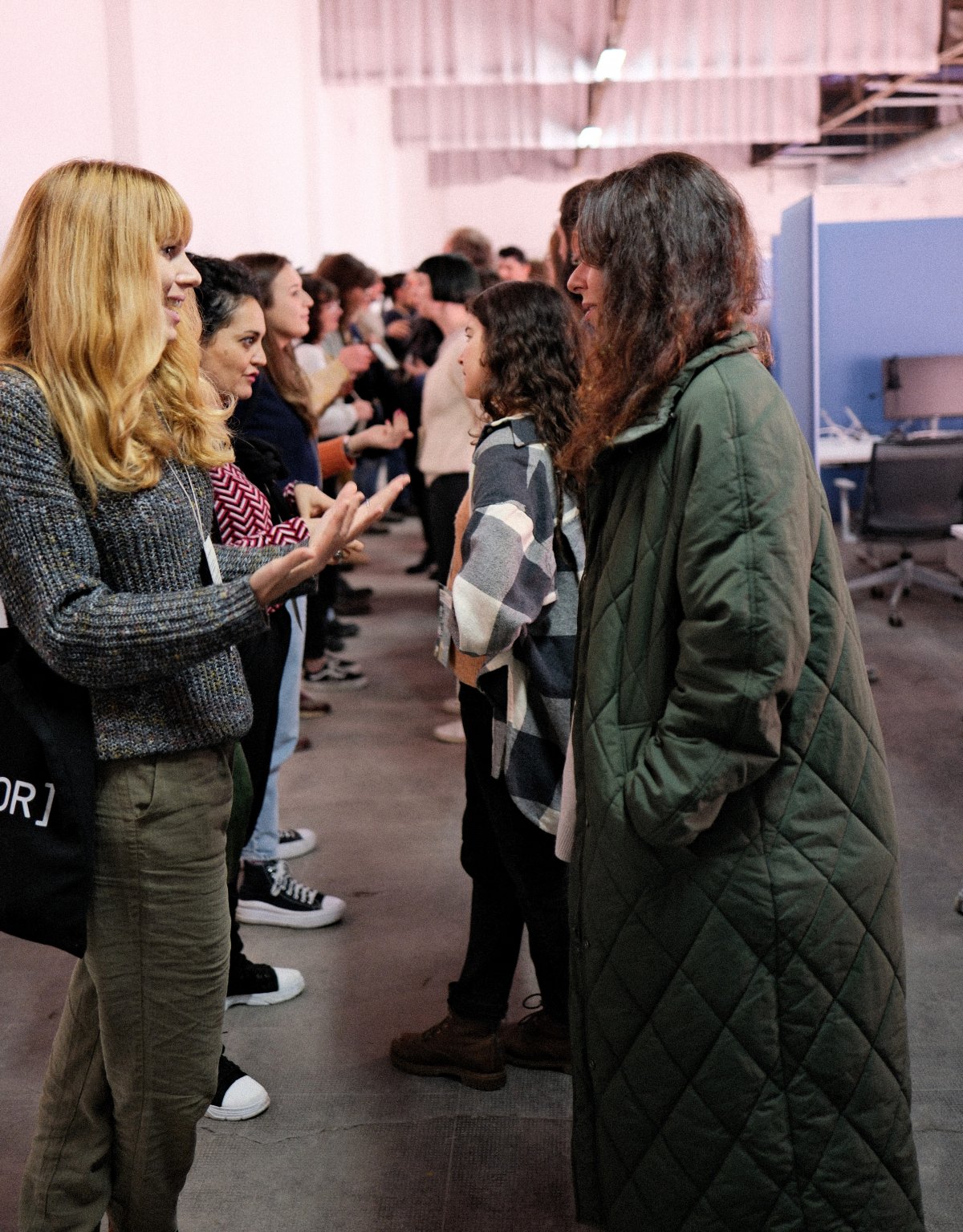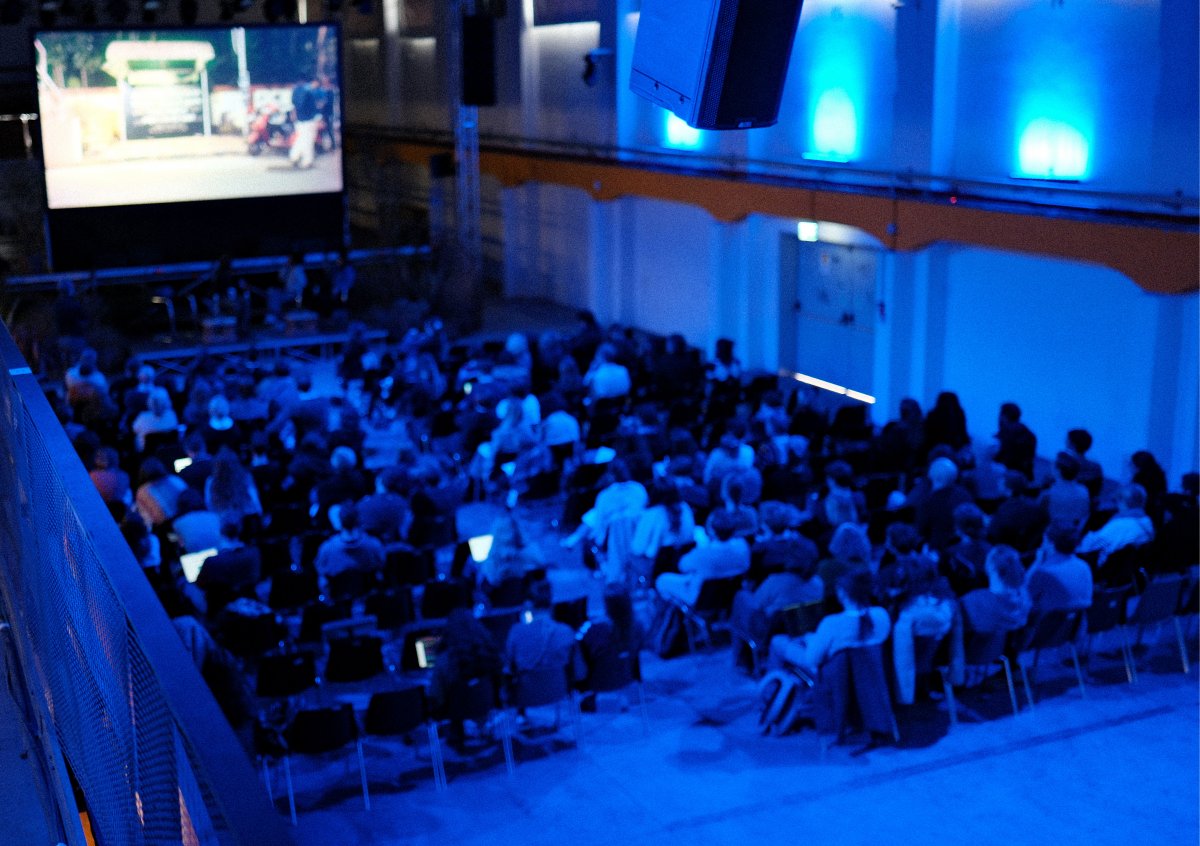The three-day Bautopia conference, the annual meeting of the European Creative Hubs Network (ECHN), highlighted the power of urban creativity and showcased innovative approaches to urban regeneration and cultural revitalisation.
The conference, attended by 136 participants, took place in Bologna's transformative DumBo district, a former industrial area used by the Italian railways that has become an example of regeneration born of a community vision.
The city's leadership strategically purchased the entire building complex, rescuing it from potential commercial development and instead breathing new life into an abandoned space.
Bologna: An example of Urban Regeneration Through Culture
Giorgia Boldrini, Director of Culture & Creativity for the Bologna Municipality, explained the city's approach. “Over the past 15 years, Bologna has been deeply committed to urban regeneration”. This commitment was evident in the municipality's holistic approach to cultural and urban development. “Cultural and creative sectors have the power to change minds,” Boldrini emphasized, highlighting the importance of imagination and hope in urban transformation. The conference underscored the critical role of creative hubs as spaces of innovation and social change.
For his part, Andrea Giotti, CEO of DumBo, said that “we have brought back to social life an abandoned part of the city”.
Rita Cortes, spokesperson for ECHN, emphasized the conference's core mission: creating meaningful connections. “Our goal is to learn from peers, share experiences, and address common challenges at a practical level,” Cortes noted. The gathering provided a platform for cities to exchange innovative strategies for urban transformation.
Anna Lisa Boni: “Cities need integrated, systemic solutions”
 A key highlight was the presentation by Anna Lisa Boni, Deputy Mayor and initiator of Eurocities, who stressed the need for collaborative, cross-sectoral approaches to urban challenges. “We can no longer work in silos,” Boni argued. “The future of cities requires integrated, systemic solutions.” Eurocities focuses on climate neutrality, with 100 cities committing to achieve this goal by 2030, twenty years before the rest of the European Union. Bologna serves as a prime example of innovative urban strategy. The city has implemented comprehensive approaches, including reducing speed limits, promoting energy autonomy, and creating new job opportunities through sustainable initiatives. Most notably, Bologna has pioneered a revolutionary approach to civic engagement. The municipality changed its statute to create a city assembly, involving 5,000 people and selecting 75 participants to deeply engage in urban planning. Participants were compensated and provided support services, including childcare, demonstrating a commitment to inclusive governance. It is estimated that Bologna will need around €11 billion to achieve what Anna Lisa Boni calls its “mission” of transitioning to climate neutrality. To this end, 24 partners, including the University of Bologna and private companies, have joined forces with 70 supporters.
A key highlight was the presentation by Anna Lisa Boni, Deputy Mayor and initiator of Eurocities, who stressed the need for collaborative, cross-sectoral approaches to urban challenges. “We can no longer work in silos,” Boni argued. “The future of cities requires integrated, systemic solutions.” Eurocities focuses on climate neutrality, with 100 cities committing to achieve this goal by 2030, twenty years before the rest of the European Union. Bologna serves as a prime example of innovative urban strategy. The city has implemented comprehensive approaches, including reducing speed limits, promoting energy autonomy, and creating new job opportunities through sustainable initiatives. Most notably, Bologna has pioneered a revolutionary approach to civic engagement. The municipality changed its statute to create a city assembly, involving 5,000 people and selecting 75 participants to deeply engage in urban planning. Participants were compensated and provided support services, including childcare, demonstrating a commitment to inclusive governance. It is estimated that Bologna will need around €11 billion to achieve what Anna Lisa Boni calls its “mission” of transitioning to climate neutrality. To this end, 24 partners, including the University of Bologna and private companies, have joined forces with 70 supporters.
Bertram Niessen: Sustainability was yesterday

Cultural researcher Bertram Niessen challenged contemporary narratives of progress and sustainability. Through his work with the cultural association cheFare, which conducts 20-30 collaborative projects annually across Italy, Niessen argued that society urgently needs a fundamental reimagining of core concepts.
The landscape of innovation, once marked by optimism about maker spaces, shared economies, and technological progress, has dramatically shifted. What were once celebrated concepts—open technology, sharing practices, and affordable travel—now appear outdated and problematic.
The enthusiasm of the past is no longer enough,” said Niessen. He pointed to a number of disillusions: from the initial excitement about Airbnb to growing frustrations with massive tourism, from welcoming attitudes toward visitors to emerging social tensions.
The changing climate provides a stark backdrop to these social transformations. Summers are no longer perceived as friendly periods of leisure, but as seasons of environmental crisis and forest fires. Niessen advocated for a comprehensive cultural reset. His critique targeted several contemporary paradigms:
- Technological solutionism
- Economic determinism
- Trickle-down economic theories
- Uncritical tech optimism
Instead, he proposed a more holistic approach to sustainability that focuses on:
- Creating quality jobs
- Establishing new social standards
- Building strategic alliances
Reimagining urban spaces for users, not just inhabitants
“We require more than incremental changes,” he emphasized. “What's required is a radical reconstruction of our cultural narratives, not as an appendage to existing practices, but as a fundamental reimagining of how we conceive solutions, policies, and social frameworks.”
The current political landscape, which Niessen sees as increasingly dominated by conservative forces, makes this cultural transformation even more urgent. He called for renewed commitments to peace, openness, and collaboration.
A critical aspect of this transformation involves reconstructing our media ecosystem. With current media landscapes increasingly oligopolistic and opaque, Niessen advocated for new collaborative platforms that can regenerate social trust and create more transparent spaces of communication.
--
Images: © ECHN









 A key highlight was the presentation by Anna Lisa Boni, Deputy Mayor and initiator of Eurocities, who stressed the need for collaborative, cross-sectoral approaches to urban challenges. “We can no longer work in silos,” Boni argued. “The future of cities requires integrated, systemic solutions.” Eurocities focuses on climate neutrality, with 100 cities committing to achieve this goal by 2030, twenty years before the rest of the European Union. Bologna serves as a prime example of innovative urban strategy. The city has implemented comprehensive approaches, including reducing speed limits, promoting energy autonomy, and creating new job opportunities through sustainable initiatives. Most notably, Bologna has pioneered a revolutionary approach to civic engagement. The municipality changed its statute to create a city assembly, involving 5,000 people and selecting 75 participants to deeply engage in urban planning. Participants were compensated and provided support services, including childcare, demonstrating a commitment to inclusive governance. It is estimated that Bologna will need around €11 billion to achieve what Anna Lisa Boni calls its “mission” of transitioning to climate neutrality. To this end, 24 partners, including the University of Bologna and private companies, have joined forces with 70 supporters.
A key highlight was the presentation by Anna Lisa Boni, Deputy Mayor and initiator of Eurocities, who stressed the need for collaborative, cross-sectoral approaches to urban challenges. “We can no longer work in silos,” Boni argued. “The future of cities requires integrated, systemic solutions.” Eurocities focuses on climate neutrality, with 100 cities committing to achieve this goal by 2030, twenty years before the rest of the European Union. Bologna serves as a prime example of innovative urban strategy. The city has implemented comprehensive approaches, including reducing speed limits, promoting energy autonomy, and creating new job opportunities through sustainable initiatives. Most notably, Bologna has pioneered a revolutionary approach to civic engagement. The municipality changed its statute to create a city assembly, involving 5,000 people and selecting 75 participants to deeply engage in urban planning. Participants were compensated and provided support services, including childcare, demonstrating a commitment to inclusive governance. It is estimated that Bologna will need around €11 billion to achieve what Anna Lisa Boni calls its “mission” of transitioning to climate neutrality. To this end, 24 partners, including the University of Bologna and private companies, have joined forces with 70 supporters.